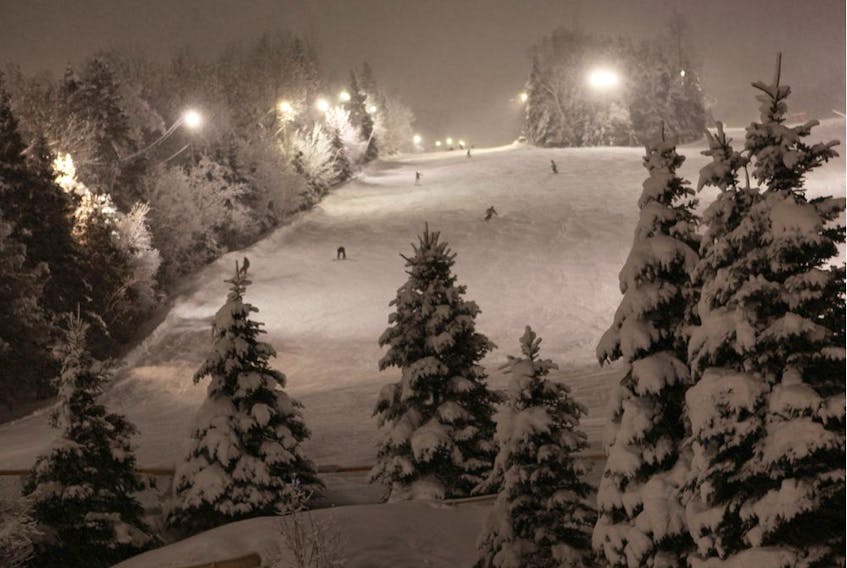Quebec’s ski areas and their patrons will face new challenges as they prepare for the coming season.
On Friday, the provincial government gave the okay for ski centres to open with strict guidelines to prevent the spread of coronavirus.
“It’s great news that Quebecers will be able to ski this winter, but we’ll have to adapt like everyone else,” said Christian Dufour, the director of marketing for Les Sommets, a collection of six Laurentian ski areas that includes Mont Saint-Sauveur, Mont Gabriel and Ski Morin Heights.
Skiers will have to cover their nose and mouth while on the slopes and it will be important to plan ahead.
“We’ve limited the number of season passes and single-day lift tickets,” Dufour said. ”Our season pass holders will be guaranteed a spot, but single-day skiers will have to reserve their tickets in advance.”
October is prime time for season pass sales with most areas offering reduced rates for early birds.
“Our sales have been good because people aren’t going to be travelling to the United States and we’ve had a bit of a real estate boom here,” Dufour said.
Charles Desourdy, the president of Ski Bromont, also reports strong season pass sales.
“We’ll be limiting the number of season passes we sell and we’re encouraging the baby boomers and other skiers who have time to ski during the week,” Desourdy said. “We’ve raised on prices on weekends and Christmas, high season.”
Desourdy said the green light for the winter season and government subsidies will allow him to keep his full-time employees on the payroll until the snow flies.
Social distancing will be enforced. Lift and gondola capacity will be reduced and there will be limits of the number of people allowed in chalets.
There will be further restrictions on visitors from red zones, which now includes an increasing portion of the province.
“They can only do the things they can do in the red zone,” Desourdy said. “They can’t go into the chalet, but they could go into the ski shop if stores are open in the red zone.”
It’s uncertain how this particular regulation will be enforced. In the absence of further clarification, the government might be relying on the dubious notion people will police themselves and do the right thing.
The red zone restrictions could affect ski school enrolment..
“We have to wait and see,” Dufour said. ”We normally get busy with the schools in January and we hope things improve by then.”
The 2018-2019 Quebec ski areas financial study conducted by UQAM professor Michel Archambault said ski schools contributed eight per cent of an area’s revenue, with that figure jumping to 17 per cent at smaller hills.
Desourdy and Dufour have a head start in dealing with the new regulations because their areas include popular water parks.
“Our water park was slow in July, but we picked up in August,” said Desourdy, noting the capacity was reduced from 5,000 visitors a day to 2,000.
Josée Cusson, the director of marketing for the Association des stations de ski du Quebec, said 60 per cent of an areas’s revenue derives from the sale of season passes and lift tickets. The rest comes from food and beverage sales, equipment sales, rentals and ski schools. Any restrictions on these activities will affect the bottom line.
She also noted areas are playing catch-up from last season when they lost an estimated $60 million when hills were shut down in mid-March. The halt came on the eve of the March break for Ontario schools.
Related
Copyright Postmedia Network Inc., 2020









